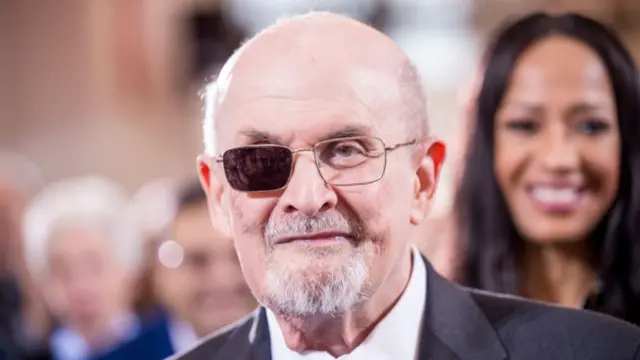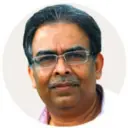Rushdie's high-profile trial in full swingpublished at 22:46 GMT 10 February
The opening day of this high-profile trial has provided numerous moments of intrigue and tension.
Here's what happened in the courtroom in the past hour or so:
- Jordan Steves, the second witness to testify, described how he ran on the stage to tackle the attacker, adding that Rushdie was clearly injured and "there was a lot of blood"
- Steves also said the suspect in the courtroom was the same man who stabbed Rushdie
- The witness was then cross-examined by the defence team, before being dismissed
- The presiding judge later requested the court to reconvene on Tuesday morning for more witness testimony, marking the end of day one hearing
- One of those witnesses will be Sir Salman Rushdie, though it's uncertain when he will testify
If you'd like to hear more details about what the court heard earlier in the day - here are the main points.
We're now pausing our live coverage. Thanks for staying with us! You can still get all the latest developments in our main story.



